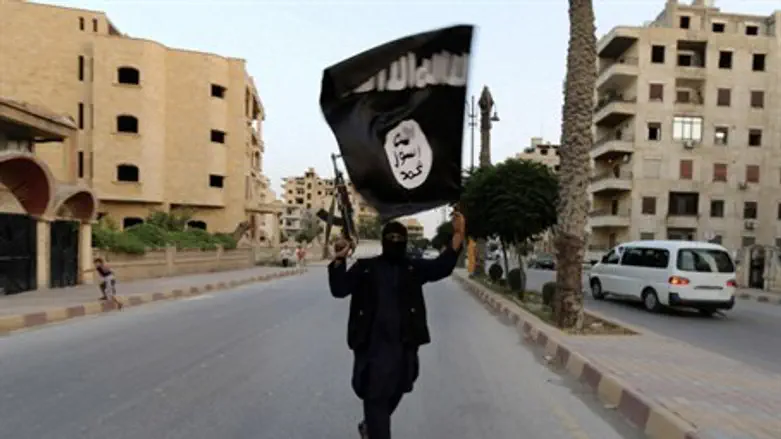
An odd social media trend transcended political and cultural boundaries, international media reported Friday, after the popular "ALS Ice Bucket Challenge" (#ALSicebucketchallenge) has sparked a movement to make burning the Islamic State (IS) flag viral instead.
Dubbed the #BurnISISFlagChallenge, hundreds of Lebanese activists have taken up the North American trend - which has become a popular way to promote the need for research into the degenerative ALS disease - and brought dissent against IS's reign of terror into the streets.
According to the Huffington Post, the idea took off after three young Lebanese men burned an IS flag in the center of Beirut following the alleged beheading of a Lebanese military officer.
The idea spread like wildfire, inflaming tensions in the border country after IS in Syria attacked a Lebanese border town earlier this week. Hundreds of photos and several videos have been uploaded to various social media sites, and at least one user has "nominated the whole world" to participate.
But more than just an innocent campaign, the hot trend has sparked the notice of Islamic and Lebanese government officials alike.
While support for the movement against IS is spreading, some - including the Lebanese Justice Ministry - have taken issue with the act of burning the flag itself, noting that the calligraphy includes the religion's tenet "there is no god by Allah and Mohammed is his prophet."
Minister Ashraf Rifi has demanded the "sternest punishment" for the instigators of the trend, according to Haaretz, firing that they are "stirring up sectarian conflicts."
But member of Lebanon's Change and Reform party disagree.
"This flag does not represent Islam in the slightest," Nabil Naqoula told the International Business Times. "The youths who burned the Isis flag did not mean to insult the Islamic religion."
IS's land grabs and systemic genocide against minorities in Iraq and Syria have set ablaze regional tensions in the Middle East, adding fuel to already-contentious conflict between Sunni and Shia Muslims.
IS, which is Sunni, has decimated much of northeastern Syria and northern Iraq - both centers of Shi'ite and Alawite power in the Middle East, along with the strongly Shi'ite Lebanon.
(Arutz Sheva’s North American desk is keeping you updated until the start of Shabbat in New York. The time posted automatically on all Arutz Sheva articles, however, is Israeli time.)
